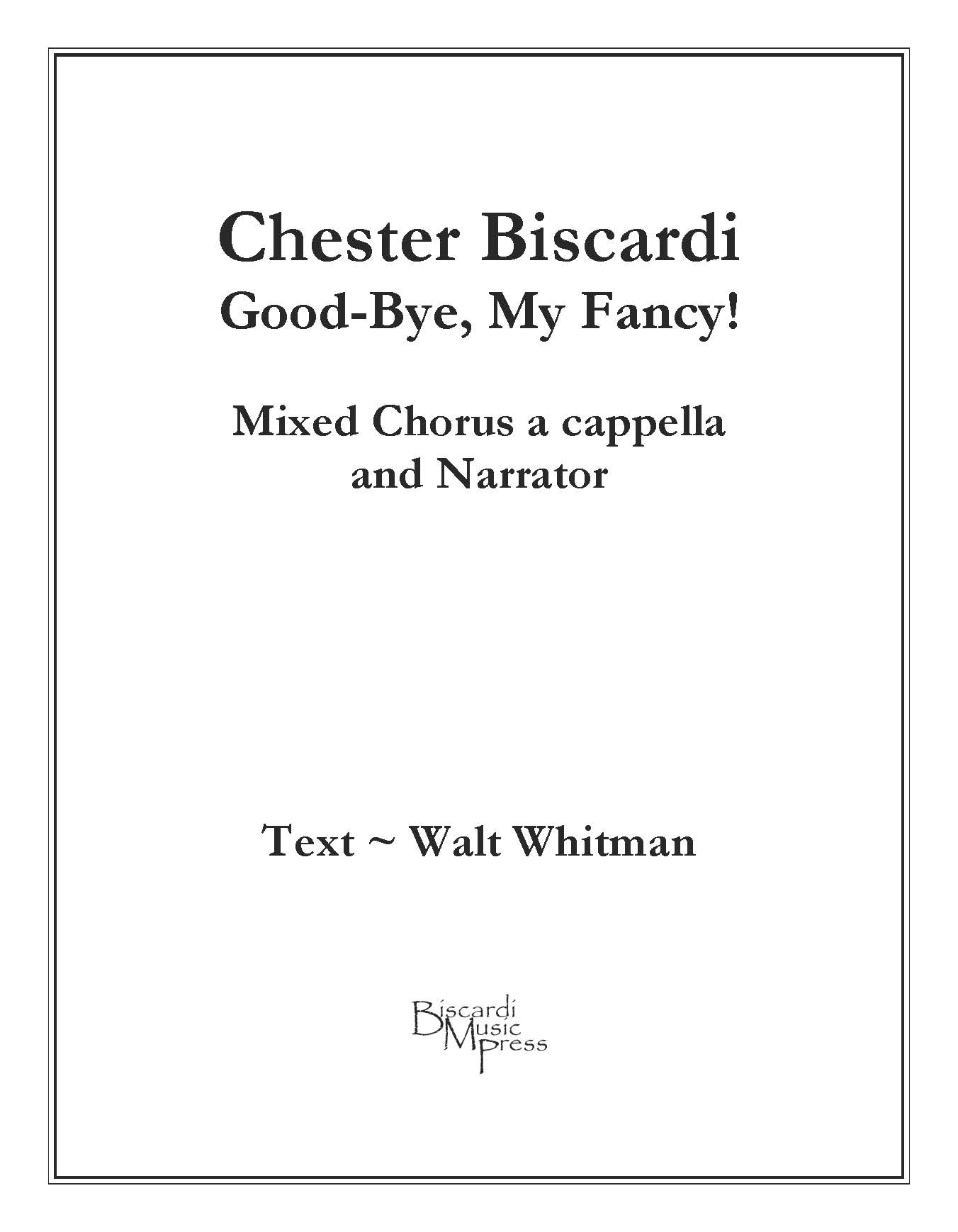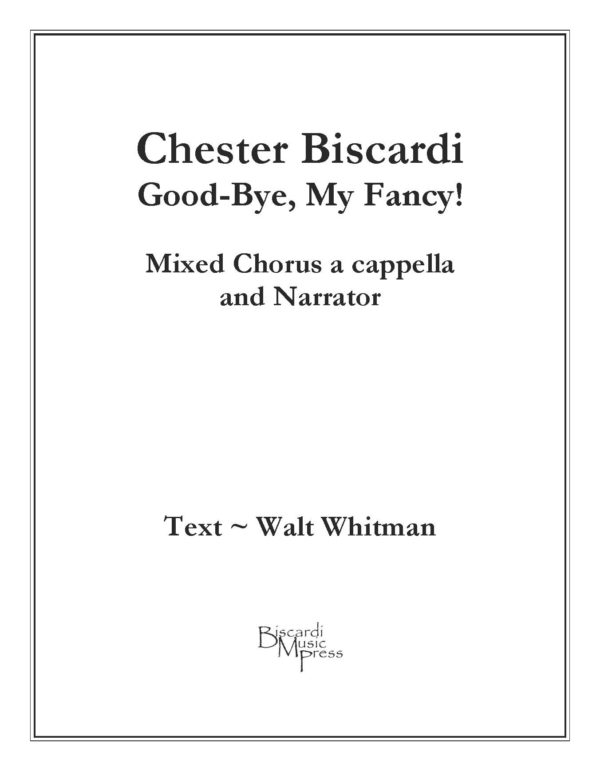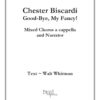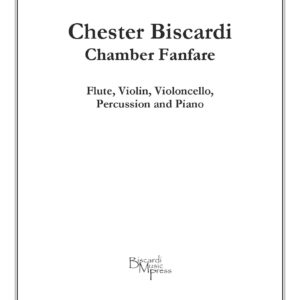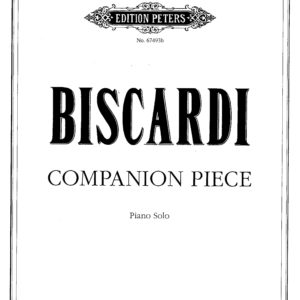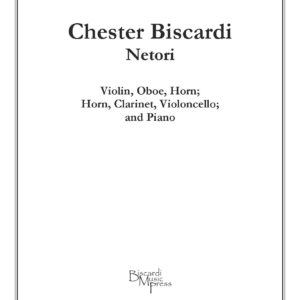Description
Premiere
14 May 1982
Concert Chorale / Larry Parsons, director
West Virginia Wesleyan College
Buckhannon, WV
Text
Text created by Mark D'Alessio from Leaves of Grass, by Walt Whitman
Commissioner
Commissioned by West Virginia Wesleyan College as part of The Decade of Celebration, 1981-1991
Publisher
Biscardi Music Press No. B48-82-1 (available on request)
Program Notes
The text was created by Mark D’Alessio from Whitman’s “Good-Bye My Fancy!” (1891) and selections from “Song of Myself” (1855), both of which appear in the 1891-1892 edition of Leaves of Grass.
This work was commissioned by West Virginia Wesleyan College as part of the Decade of Celebration, 1981-1991, and is dedicated to Larry Parson. West Virginia Wesleyan College was founded in 1891, the same year Walt Whitman wrote his final poem, “Good-Bye My Fancy!”
In 1982 I was commissioned by West Virginia Wesleyan College to write the second in a series of works by ten different composers leading up to the college’s centennial celebration in 1991. I chose as my text Walt Whitman’s “Good-Bye, My Fancy!” – which happens to be his final poem – for two reasons: first of all, it was written in 1891, the same year the college was founded; and, since it was to be premiered at commencement, I felt that the message of the poem was an appropriate farewell for the students. For Whitman it is, among other things, a farewell to his creative spirit – his poetic genius. But it is not a farewell to life, because for him death is “the leavings of many deaths” – death is a constant and universal renewal of bodies and souls and nature.
As a young man Whitman was also a music critic, and he esteemed the musician as a poet, prophet, and mystic celebrator of our many selves. In my setting the chorus sings the text from “Good-Bye, My Fancy!” while the narrator reads other selections specific to the “Song of Myself” section of Leaves of Grass. The chorus and narrator become two voices within one body, and the resulting “dialogue” explores the different parts of self, including the creative self. In the beginning of the piece the chorus interrupts the narrator–not wanting him to go. But eventually, when the narrator sings along with the chorus, they are briefly “blended into one.” This dramatization describes the miracle of a man who, near “death,” sees into the heart of creation. (WW 1819-1892)

